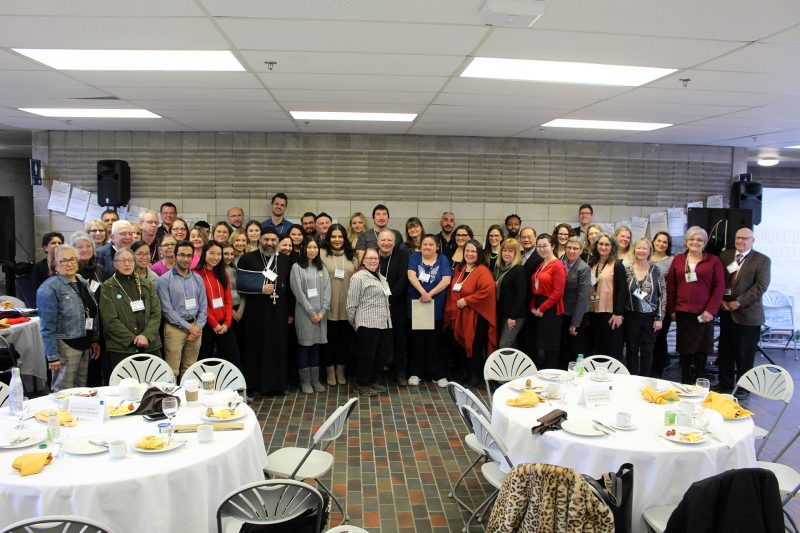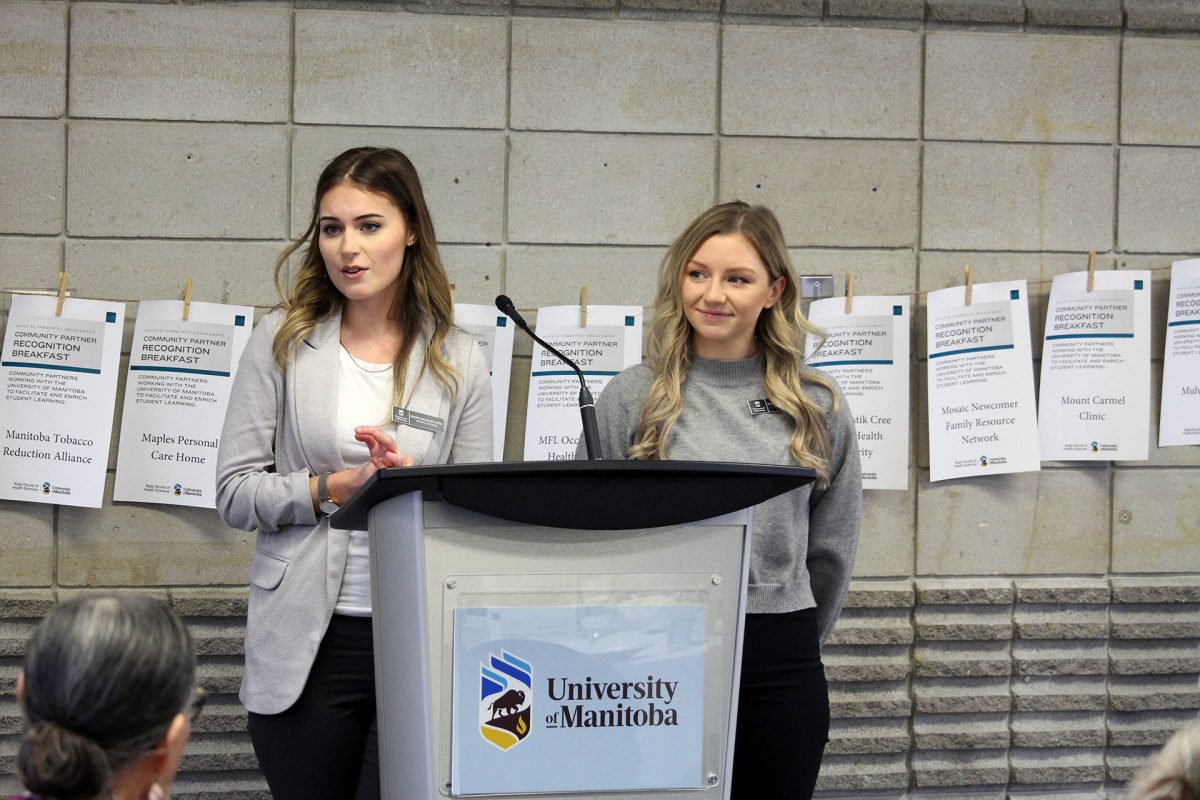
Dental hygiene students Shayna Coughlan-Castell and Shayla Welechenko speak at the Community Partner Recognition Breakfast.
Breakfast recognizes community partners in shaping future health professionals
The message of the third annual Community Partner Recognition Breakfast was that working with community organizations can profoundly affect how Rady Faculty of Health Sciences students practice when they enter their profession.
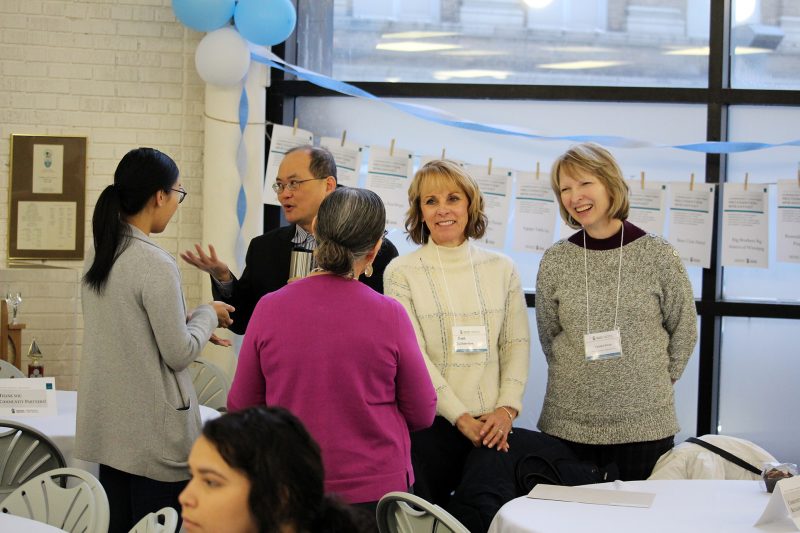
Guests mingle at the Community Partner Recognition Breakfast.
The breakfast, held on February 26, 2020, acknowledged the multiple roles that community plays in the education of students in the Rady Faculty of Health Sciences.
The Rady Faculty collaborates with 119 community organizations to develop, deliver and enrich educational programming. These collaborations come in many forms such as guest lectures, service learning, non-clinical placements and panel discussion participation.
The event recognized the time, effort, expertise and resources that organizations put in to work with students, which involves coordinating schedules, meeting varying learning objectives for different colleges and participating in student progress monitoring/assessment.
“In a large number of ways, you add value to the education of our students here at Rady Faculty,” said Karen Cook, co-lead, Office of Community Engagement.
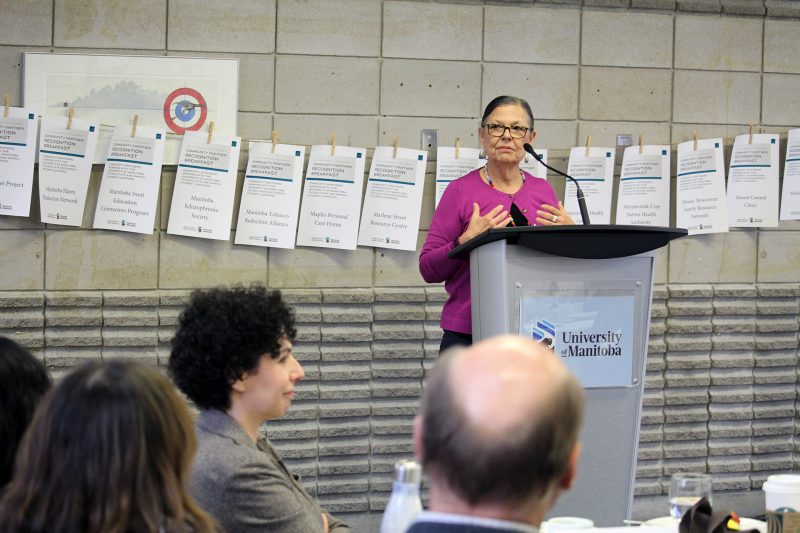
Leslie Spillett, Knowledge Keeper at Ongomiizwin – Indigenous Institute of Health and Healing, speaks at the Community Partner Recognition Breakfast.
As part of the Rady Faculty Office of Interprofessional Collaboration’s orientation in September 2019, nearly 600 students from all colleges in the faculty visited 29 community organizations around Bannatyne campus to learn about the community, agency partners and volunteer/service learning opportunities.
Dr. Brian Postl, dean, Rady Faculty of Health Sciences, said that community partners have more impact on students than they realize.
“Students need a broader educational experience around our community, around the diversity in the community and around where they fit not only in recognizing disease patterns but also in recognizing health patterns that will influence how they practice as health professionals,” he said.
Dental hygiene students Shayla Welechenko and Shayna Coughlan-Castell spoke about the work they do with various organizations, including the Smiles for Miles program, the Variety Children’s Dental Outreach Program, the Centre for Community Oral Health, and the Winnipeg Interdisciplinary Student-Run Health Clinic.
“We are very fortunate to be a part of such a great professional program that offers learning initiatives in the community that not only benefit and give back to the community but also help shape us as future clinicians. We are able to learn valuable skills and develop empathy to apply that to our future practice,” said Coughlan-Castell.
Welechenko said working with populations such as newcomers to Canada helped them learn firsthand about the many challenges newcomers face.
“These externships and rotations all work together in lifting the notes and illustrations off the pages of our textbooks and into real world experiences that help us learn and grow,” said Welechenko.
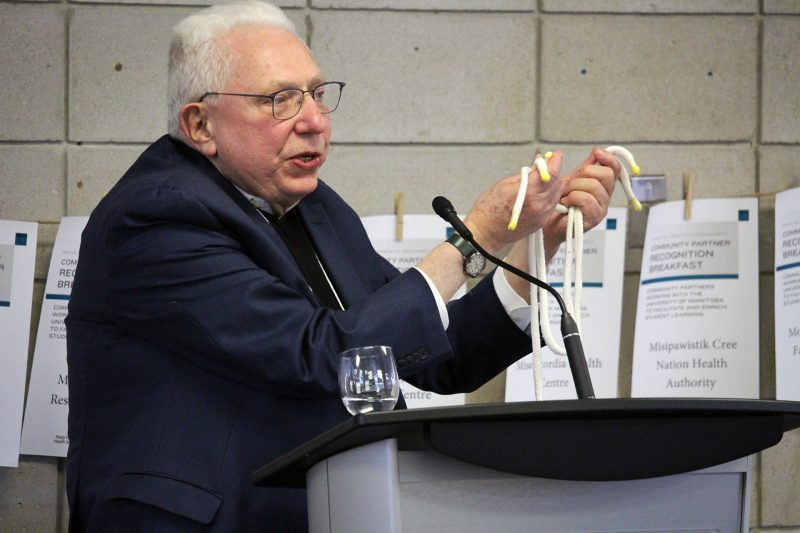
Dr. Joe Kaufert uses ropes to illustrate levels of equality in society, saying community agencies will help to pull the ropes apart.
Dr. Joe Kaufert, Professor Emeritus, department of community health sciences, and volunteer with Winnipeg Harvest, said that working with community partners helps students to learn about what life is like for people who live on the margins.
“One of the things you can learn in a setting like Winnipeg Harvest is how does a person who lives on the edge economically make a go of it from a day to day basis,” he said.
Leslie Spillett, Knowledge Keeper at Ongomiizwin – Institute of Health and Healing, said her experience working in the community taught her about the importance of relationship building, reciprocity and accountability in community engagement.
“When we see each other fully as human beings then we can start a relationship that is based on equity, and honesty and integrity.”
